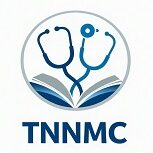FCI Manager Syllabus 2022
FCI Manager Syllabus 2022: FCI will soon release the notification for the FCI Recruitment 2022 on its official website. It will be a wonderful opportunity to attain a reputable post in the central government. It is important for the candidates to go through the syllabus before starting with the preparation for the FCI Manager Examination. Applicants can start their preparation today onward to get a good score on the Exam. They may get an idea of the type of subjects and questions that will be asked in the examination. The FCI Manager Syllabus 2022 has been described below. Details of each topic from each section of the exam are described in the Syllabus. Read further to find out.
FCI Recruitment 2022 Notification
FCI Manager Syllabus – Topicwise Syllabus
The FCI Manager Syllabus is given for the Online Test, which is a written Exam comprising Paper 1 and Paper 2.
FCI Manager Syllabus for Paper 1
FCI Manager Syllabus for Paper 1 comprises 120 Multiple Choice Questions of General Aptitude
- Reasoning Ability
- English Language
- Numerical Aptitude
The details syllabus for FCI Manager 2022 Phase-I exam is mentioned below:
| FCI Manager 2022 Phase- I Syllabus | ||
| Reasoning Ability | English Language | Numerical Aptitude |
|
|
|
FCI Manager Syllabus for Paper 2
Paper 2 determines the overall intelligence and conceptual knowledge of the candidate. The topics of the syllabus for each post in FCI Manager are described below. Go through the same for your relevant post. The Manager Posts include the GENERAL/ DEPOT/ MOVEMENT/ ACCOUNTS/ TECHNICAL/ CIVIL ENGINEERING/ELECTRICAL MECHANICAL ENGINEERING/HINDI.
Hence, the topics are listed separately for each category.
FCI Manager Exam Pattern 2022- Click to check
FCI Manager Salary 2022 – Click to check
FCI Manager Syllabus Phase II- Topic-wise and Post wise
The FCI Manager syllabus for specified technical posts of Paper-2 to assess the post-specific technical knowledge of the relevant stream is as under:
I. FCI Manager (Accounts) (Post Code-D): This post has categories for specialised persons from Accounting, Finance, Taxes, Auditing and who has a basic knowledge of Computers.
- Basic Accounting concept– This includes the preparation of books of accounts and Accounting Standards.
- Financial Accounting –
(a) Analysis of Financial statement
(b) Budgeting & Budgetary control
(c) Working Capital management
(d) Capital Budgeting & Ratio Analysis - Taxation –
(a) Income Tax including filing of the return, TDS, Advance Tax etc
(b) Goods & Services Tax. - Auditing –
(a) Auditing Concepts and Methods
(b) Internal & External Audit of Companies - Commercial Laws –
(a) Contract Act
(b) Companies Act
(c) Sales of Goods Act
(d) Negotiable Instrument Act
(e) Consumer Protection Act
(f) RTI Act - Basic Computers
(a) Operating System
(b) Browsers
(c) Email
(d) Memory(Internal, External, portable)
(e) Chats
(f) Office (Word, PowerPoint, Excel)
(g) Networks
II. FCI Manager (Technical) (Post Code-E): This post has categories for specialised persons from Agriculture, Biotechnology, Entomology, Chemistry field
- Agriculture
(a) Statistics of Indian Agriculture (Cereals & Pulses)
(b) Food & Agriculture Microbiology
(c) Nutrition (Animal & Plant)
(d) Postharvest care of Cereals & Pulses
(e) Food grain Protection
(f) Agriculture Extension - Biotechnology
(a) Microbes: Beneficial & Harmful
(b)Genetic Engineering,
(c) Biotechnological Principles
(d) Economic Biotechnology
(e) Pathogens & Control
(f) Recent trends - Entomology
(a) Basic Entomology
(b)Economic Entomology
(c) Beneficial and harmful insects
(d) Integrated Post Management (IPM)
(e) Storage Grain Insect pest
(f) Vertebrate Pests - Chemistry–
(a) Physical Chemistry: Structure of Atoms, Chemical Bonding, Radioactivity
(b) Inorganic Chemistry, Periodic Table, Basics Metals & Non-metals
(c) Organic Chemistry, Basics of alkanes, alkenes, alkynes, alcohols, aldehydes and acids
(d) Biochemistry (Carbohydrates, Proteins & Fats) - Food-
(a) PFA Act, 1964
(b) Food Safety and Standards Act, 2006/Food Safety and Standards Regulations 2011
(c) Right to Information Act, 2005
III. FCI Manager Syllabus (Civil Engineering) (Post Code-F): This post has categories for specialised persons from Engineering, construction, building, Surveying, Soil Engineering, Design
- Engineering Materials & Construction Technology:
(a) Selection of the site for the construction
(b) Engineering Materials & Construction Technology
(c) Planning and orientation of buildings, acoustics
(d) Ventilation and air conditioning
(e) Building and highway materials, Stones, Bricks timber, Lime, Cement Mortar, Plain and reinforced Cement Concrete, Bitumen, Asphalt - Building Materials:
(a) Stone, Lime, Glass, Plastics, Steel, FRP, Ceramics, Aluminium, Fly Ash, Basic Admixtures,
(b) Timber, Bricks and Aggregates Classification, properties and selection criteria, Cement etc - Construction Practice, Planning and Management:
(a) Construction Planning
(b) Equipment, site investigation
(c) Tendering Process and Contract Management
(d) Quality Control, Productivity, Operation Cost
(e) Land acquisition, Labor safety and welfare - Surveying:
(a) Surveying
(b) Leveling, temporary and permanent adjustments of levels and Theodolite
(c) Use of theodolite
(d) Tachometry
(e) Trigonometrically and Triangulation survey
(f) Contours and contouring
(g) Computations of areas and volumes - Soil/Geotechnical Engineering:
(a) Classification of soil
(b) Field identification tests
(c) Water content, specific gravity, voids ratio, porosity, Soil permeability and its determination in the laboratory and field
(d) Darcy’s law, Flow nets its Characteristics
(e) Local and general shear failures
(f) Plate load test
(g) Stability of simple slopes - Highway and bridges:
(a) Classification of road land width
(b) Flexible pavements
(c) WBM courses, sub base, sand bitumen base curse, crushed cement concrete base / sub-base course
(d) Prime and tack coats
(e) surface dressing
(f) Asphaltic concrete, seal coats - Structural Analysis:
(a) Strength of materials
(b) Bending moments and shear force
(c) Suspended Cables
(d) Concepts and use of Computer-Aided Design - Design of steel structures:
(a) Principles of working stress methods
(b) Design of tension and compression members
(c) Design of beams and beam-column connections, built-up sections, Girders, Industrial roofs
(d) Principles of Ultimate load design - Design of Concrete and Masonry Structures:
(a) Principles of working stress methods
(b) Design of tension and compression members
(c) Design of beams and beam column connections, built-up sections, Girders, Industrial roofs
(d) Principles of Ultimate load design - Estimating, Costing and Valuation:
(a) estimate, analysis of rates, earthwork
(b) Brick , RCC work shuttering, Painting, Flooring, Plastering flexible pavements, Tube well, isolates and combined footings, Steel Truss, Piles etc
(c) Valuation- Value and cost, scrap value, salvage value, assessed value, sinking fund, depreciation and obsolescence, methods of valuation
IV. FCI Manager syllabus (Electrical Mechanical Engineering) (Post Code-G):
(a) Thermodynamics
(b) Heat Transfer, Refrigeration and Air-conditioning
(c) Theory of Machines, Machine Design
(d) Strength of Materials, Engineering Materials
(e) Production Engineering , Industrial Engineering
(f) Production Planning and Control
(g) Material handling
(h) Electrical Circuits, Network theorems, EM Theory
(g) Strength of Materials, Engineering Materials
(i) Electrostatics, Material Science (Electric Materials), Electrical Measurements,
(j) Elements of Computation Power Apparatus and Systems (Power System: Power generation; Thermal, Hydro, Nuclear & Solar power production and Transmissions)
(k) Electromechanics, Control Systems, Electronics and Communications, Estimation and costing, Use of computers
For appearing in FCI Manager (Hindi) Paper-IV candidate should be able to use the following keyboard layouts:
1. Inscript
2. Remington (GAIL)
Click here to Check More Govt Jobs
FCI Manager Syllabus 2022 – FAQs
Q1. Is the syllabus for the Phase II Exam for FCI Manager Post 2022 different?
Ans. Yes, the syllabus for the Phase II Exam for FCI Manager Post 2022 is different for different posts.
Q2. From where can I get the FCI Manager Syllabus 2022?
Ans. You can get all the details of the FCI Manager Syllabus 2022 from the article.
Sharing is caring!



